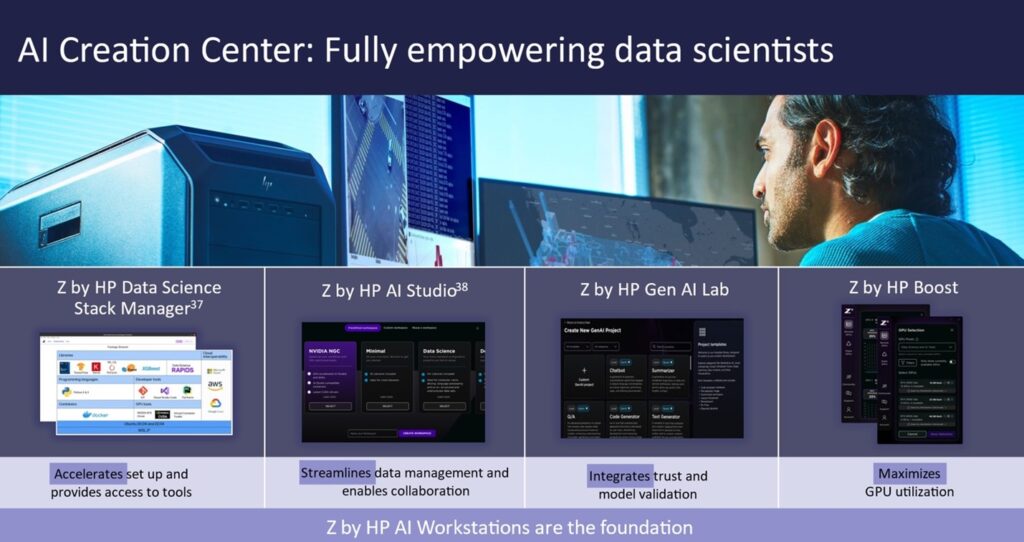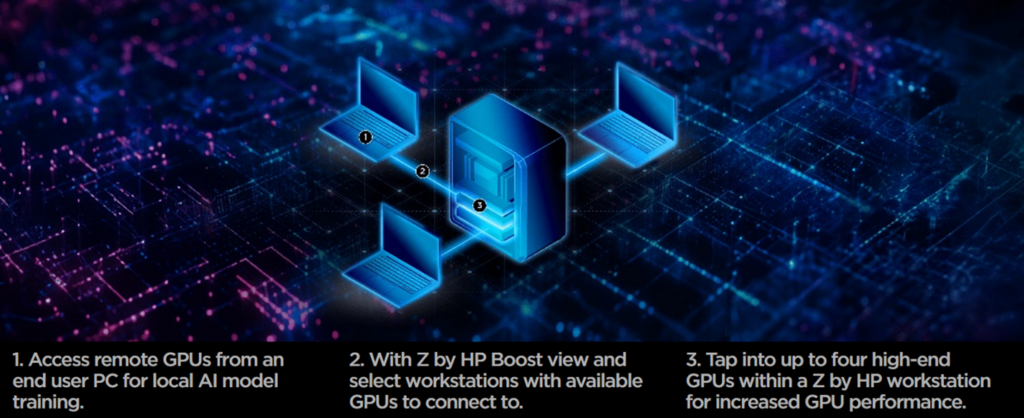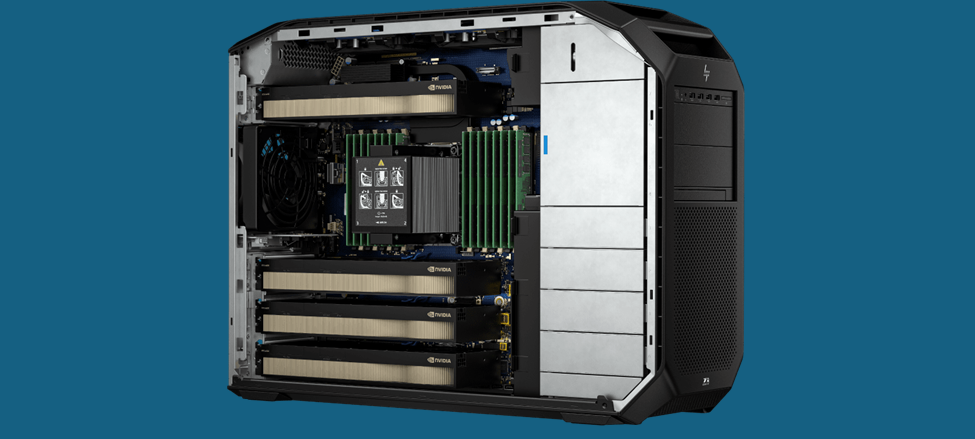HP offers tools to enhance data scientists’s productivity and maximize capital expense investment. HP’s AI Studio supports collaboration, rapid project setup, and predictable AI development costs. Features include simplified team management and on-demand GPU access with Z by HP Boost. HP collaborates with Nvidia and offers dedicated workstation solutions. The company aims to address data scientists’s needs, as only 33% are satisfied with current AI tools and 81% lack confidence in quick deployment.

HP offers its customers, including data scientists, a higher ROI with tools that enhance productivity and squeeze more utilization out of capital expense investment.
Employment rates in the data scientist sector are expected to grow by 36% from 2021 to 2031, making it one of the fastest-growing occupations. HP began investing in the needs of data scientists about five years ago and sponsoring over 25 ambassadors who were specialists in various aspects of data science to access and analyze what data scientists needed in order to accelerate their work. One of the first things they learned was the ubiquity of Linux, so that became the backbone of HP’s developments. This year, the company brought forth a suite of tools for the data scientist community.
In June, the company introduced high-performance AI PCs and integrated a trust framework into its AI model development platform, expanding its efforts to make AI more accessible and practical.
- HP announced the only AI platform for workstations with built-in generative AI trust for large language model (LLM) development to detect and correct bias in models in Z by HP AI Studio.
- The company also introduced the first HP OmniBook Ultra AI PC with up to 55 TOPS of NPU performance (based on the AMD Ryzen AI 300).
- Enabled safe and secure use of AI with Wolf Security on the HP OmniBook Ultra.
- Explored AI-powered apps for productivity and content creation from Beautiful.ai, Loccus.ai, Luminar Neo, Omnibridge, Polymer, and Virtual Sapiens.
HP’s investigations revealed that only 33% of data scientists are satisfied with their current AI tools, and 81% lack confidence in their company’s ability to deploy them quickly. This underscores the urgent need for solutions that can rapidly transform business operations.
Announced earlier this year, HP has added additional capabilities to the Z by HP AI Studio for faster and safer AI application deployment, building trust in LLM development and customization. HP has integrated Galileo’s suite of tools including Galileo Luna evaluation models—Galileo Evaluate, Galileo Observe, and Galileo Protect—into Z by HP AI Studio. With it, users can detect and correct hallucinations, drift, and bias in their models, while protecting against inaccurate or biased outputs, all within the AI Studio platform. HP is the first and currently only workstation supplier to develop an AI platform for workstations with built-in generative AI trust for LLM development.

Z by HP AI Studio is a data science platform that supports collaboration among data scientists and AI developers worldwide. It provides tools and compute resources to streamline workflows, allowing users to easily create shared projects, connect to necessary data, and invite collaborators.
HP’s AI Studio software enables teams to deploy models on their own schedule across various environments, including local, edge, and cloud. This platform offers flexibility to drive innovation and helps manage AI development costs.
Features include:
- Simplified collaboration management: This will enable data scientists and AI developers to collaborate on projects regardless of their location. By connecting and collaborating locally and via the cloud, professionals can work more effectively and efficiently than before.
- Rapid project setup: Create shared AI projects and connect to the necessary data in under a minute, streamlining the development process and increasing productivity.
- Simplified team management: Users can work together on projects quickly, simplifying collaboration and facilitating communication among team members. With HP’s AI Studio, creating a workspace, inviting colleagues to join a project, and ensuring everyone works the same way is easy.
- Predictable AI development: Get better insight to provide better predictability of AI development costs, helping organizations plan and budget more effectively.
HP has also been collaborating with Nvidia to be the first company to offer CUDA-X frameworks for workstation development through its AI Studio. The collaboration makes it easier to access NGC foundation models and streamlines development. HP has also introduced GPU sharing with its Z by HP Boost.

Users can get a performance boost by gaining access to remote GPUs in workstations they own and turning PCs into powerhouse devices, providing power for teams to iterate quickly, improving model development, and delivering AI solutions effectively.
Remote GPU access promises anytime productivity by enabling teams to tackle AI workflows from nearly anywhere. With remote GPU access, says HP, teams can train AI models on their devices without compromising on compute.
Most workstation GPUs are used 20% of the time. Boost will make it possible for them to be available to other data scientists. It’s a one-to-many organization today; a user can look at the shared pool and borrow a GPU for a project.
And if users want even more GPU power, HP has Z8 Fury.

Packed with up to four GPUs, it is the most advanced workstation for AI creation, says HP.
The Z8 Fury is a single-socket system with up to 60 cores in a single CPU, as well as a maximum of four high-end GPUs.
Z by HP Boost will be available soon. Join the waitlist now.